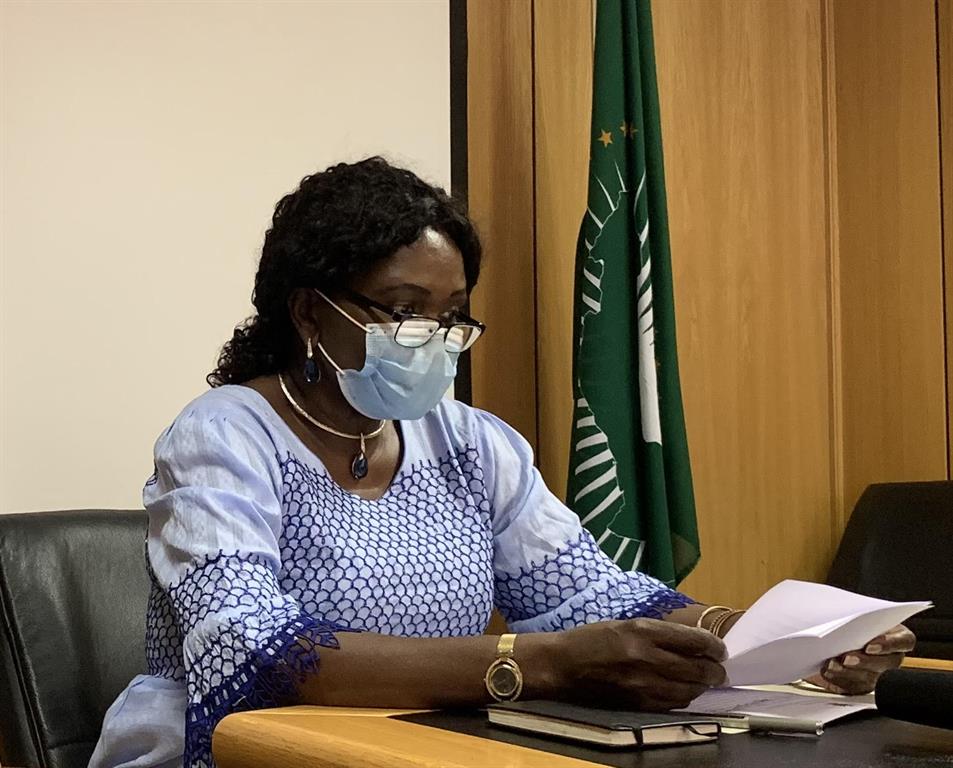Admission to tertiary institutions ironed out
Wetumwene Shikage
On Thursday, 11 February, the minister of higher education, technology and innovation, Dr Kandji-Murangi, held a press conference to enlighten the public on the admission of learners to tertiary institutions during the 2021 academic year.
Keeping the main focus derived from the outcome of the National Education Conference of 2011, the then ministry of education was tasked to review the curriculum for basic education towards the realisation of Vision 2030 that envisages the transition of Namibia from a literate society to a knowledge-based society. In order to achieve this transition, bold and brave decisions need to be made by both basic and higher education with careful analysis of the challenges of the old system which will ensure quality and sustainability of education in Namibia. A new reform started in 2015 drove the idea for National Senior Secondary Certificate Ordinary (NSSCO) Level and the National Advanced Subsidiary (NSSCAS), learners to continue with tertiary education. This will not only improve the Namibian education system to bring the country’s basic education system in line with others in Southern Africa, but will also make Namibia a place where knowledge is constantly being acquired, renewed and applied to improve the quality of life for the Namibian citizens.
With this new reform in place, Dr Kandji-Murangi advised that we be mindful that certain institutions and programmes, such as medicine and engineering, offered at tertiary education have specific admission requirements which will continue to be looked at upon application.
With the newly introduced reform to allow grade 11 learners to advance to tertiary education, many learners are uncertain about the admission requirements. Dr Kandji-Murangi acknowledged and congratulated the grade 11 and grade 12 learners for the dedication they have invested in their schoolwork. She informed them that those who meet the admission requirements will be welcomed at tertiary institutions, including TVET centres, colleges, institutes and universities.
Dr Kandji-Murangi placed great emphasis on the grade 11 learners, with expectations high for them to excel and deliver the expected change which comes envisioned with this new reform.
“Grade 11 learners who wish to proceed to the newly introduced Advanced Subsidiary level are a critical mass of pioneers who will make or break the new and important reform,” she said.
They may also apply to tertiary institutions. She added that the ministry had been informed that 113 361 learners - comprising of 23 118 NSSC Higher Level, 68 595 NSSC Ordinary (old) and 21 648 NSSC Ordinary (new) candidates - had registered for 2020 national examinations. Of these, 6 448 full-time candidates achieved a C or better grade at Ordinary Level or 3 or better at Higher Level. These learners may qualify for admission at tertiary institutions.
“Our higher education institutions are now busy finalising admissions from this cohort,” she said.
On Thursday, 11 February, the minister of higher education, technology and innovation, Dr Kandji-Murangi, held a press conference to enlighten the public on the admission of learners to tertiary institutions during the 2021 academic year.
Keeping the main focus derived from the outcome of the National Education Conference of 2011, the then ministry of education was tasked to review the curriculum for basic education towards the realisation of Vision 2030 that envisages the transition of Namibia from a literate society to a knowledge-based society. In order to achieve this transition, bold and brave decisions need to be made by both basic and higher education with careful analysis of the challenges of the old system which will ensure quality and sustainability of education in Namibia. A new reform started in 2015 drove the idea for National Senior Secondary Certificate Ordinary (NSSCO) Level and the National Advanced Subsidiary (NSSCAS), learners to continue with tertiary education. This will not only improve the Namibian education system to bring the country’s basic education system in line with others in Southern Africa, but will also make Namibia a place where knowledge is constantly being acquired, renewed and applied to improve the quality of life for the Namibian citizens.
With this new reform in place, Dr Kandji-Murangi advised that we be mindful that certain institutions and programmes, such as medicine and engineering, offered at tertiary education have specific admission requirements which will continue to be looked at upon application.
With the newly introduced reform to allow grade 11 learners to advance to tertiary education, many learners are uncertain about the admission requirements. Dr Kandji-Murangi acknowledged and congratulated the grade 11 and grade 12 learners for the dedication they have invested in their schoolwork. She informed them that those who meet the admission requirements will be welcomed at tertiary institutions, including TVET centres, colleges, institutes and universities.
Dr Kandji-Murangi placed great emphasis on the grade 11 learners, with expectations high for them to excel and deliver the expected change which comes envisioned with this new reform.
“Grade 11 learners who wish to proceed to the newly introduced Advanced Subsidiary level are a critical mass of pioneers who will make or break the new and important reform,” she said.
They may also apply to tertiary institutions. She added that the ministry had been informed that 113 361 learners - comprising of 23 118 NSSC Higher Level, 68 595 NSSC Ordinary (old) and 21 648 NSSC Ordinary (new) candidates - had registered for 2020 national examinations. Of these, 6 448 full-time candidates achieved a C or better grade at Ordinary Level or 3 or better at Higher Level. These learners may qualify for admission at tertiary institutions.
“Our higher education institutions are now busy finalising admissions from this cohort,” she said.




Kommentaar
Republikein
Geen kommentaar is op hierdie artikel gelaat nie